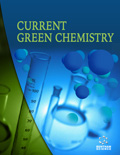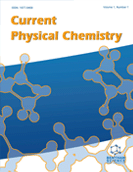Abstract
The present article aims to review the recent developments in asymmetric aldol reactions under solvent-free conditions or in water. Asymmetric catalysis is undoubtedly the most popular technique for realizing enantioselective synthesis of different target molecules. Prolines and Cinchona alkaloids have emerged as very powerful chiral organocatalysts. There is continuous effort around the globe to develop greener methodologies for organic syntheses. Researchers have made efforts to apply the principles of green chemistry in asymmetric aldol reactions as well. The present review article focuses on the recent development of enantioselective aldol reactions under solvent-free conditions or in water as a green solvent. In many cases, such reactions occur at ambient temperature, thereby offering energy-efficiency in those transformations. L-proline and its derivatives, especially amides, have been observed to play prominent role in catalyzing asymmetric aldol reactions in aqueous medium or under solvent-free conditions. The use of compounds derived from azetidine, L-serine, and morpholine as catalysts in enantioselective aldol reactions in either aqueous medium or under solvent-less condition is also described.
Keywords: Aldol, enantioselective, water, proline, solvent-free, β-hydroxycarbonyl compounds.
Graphical Abstract











